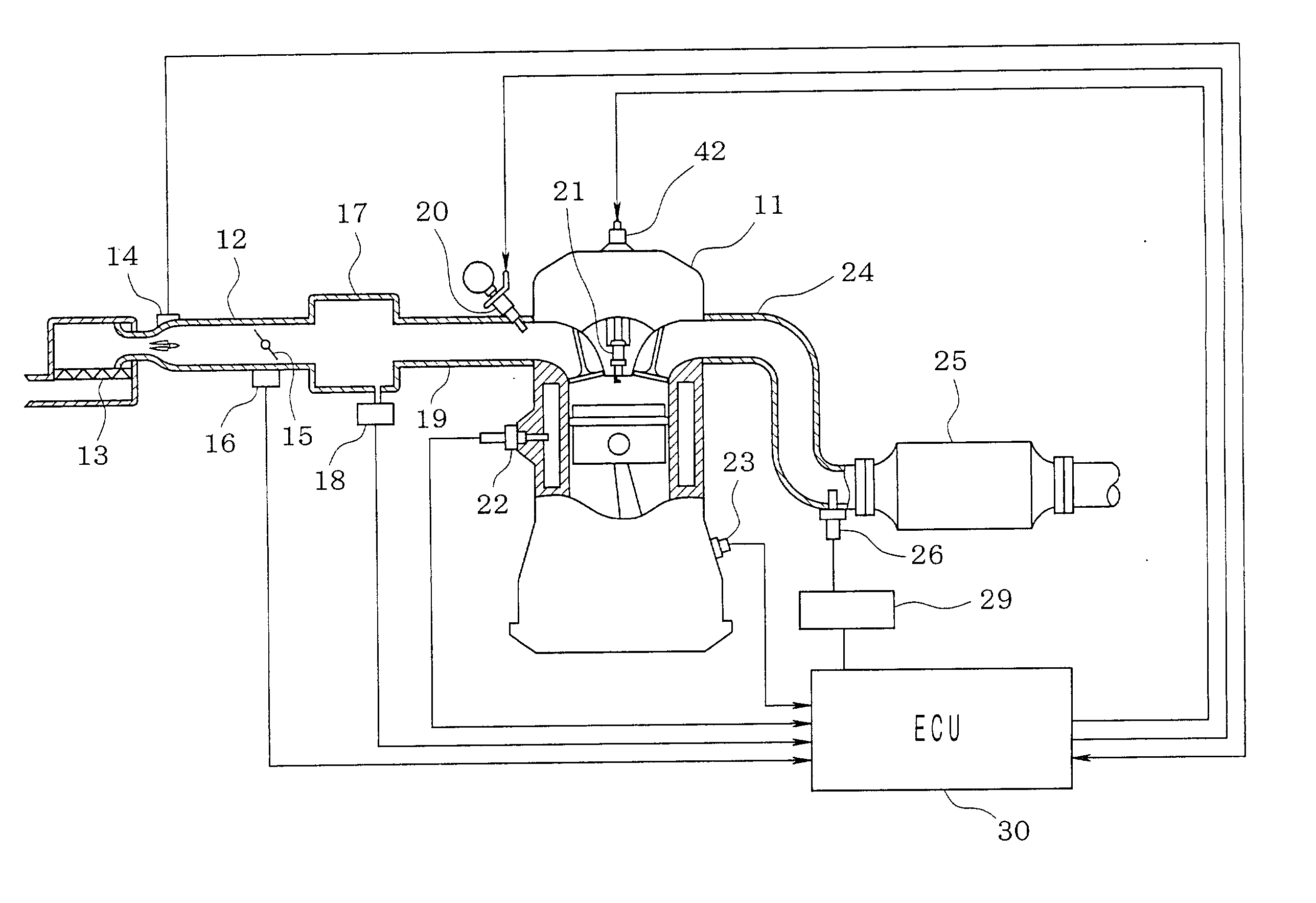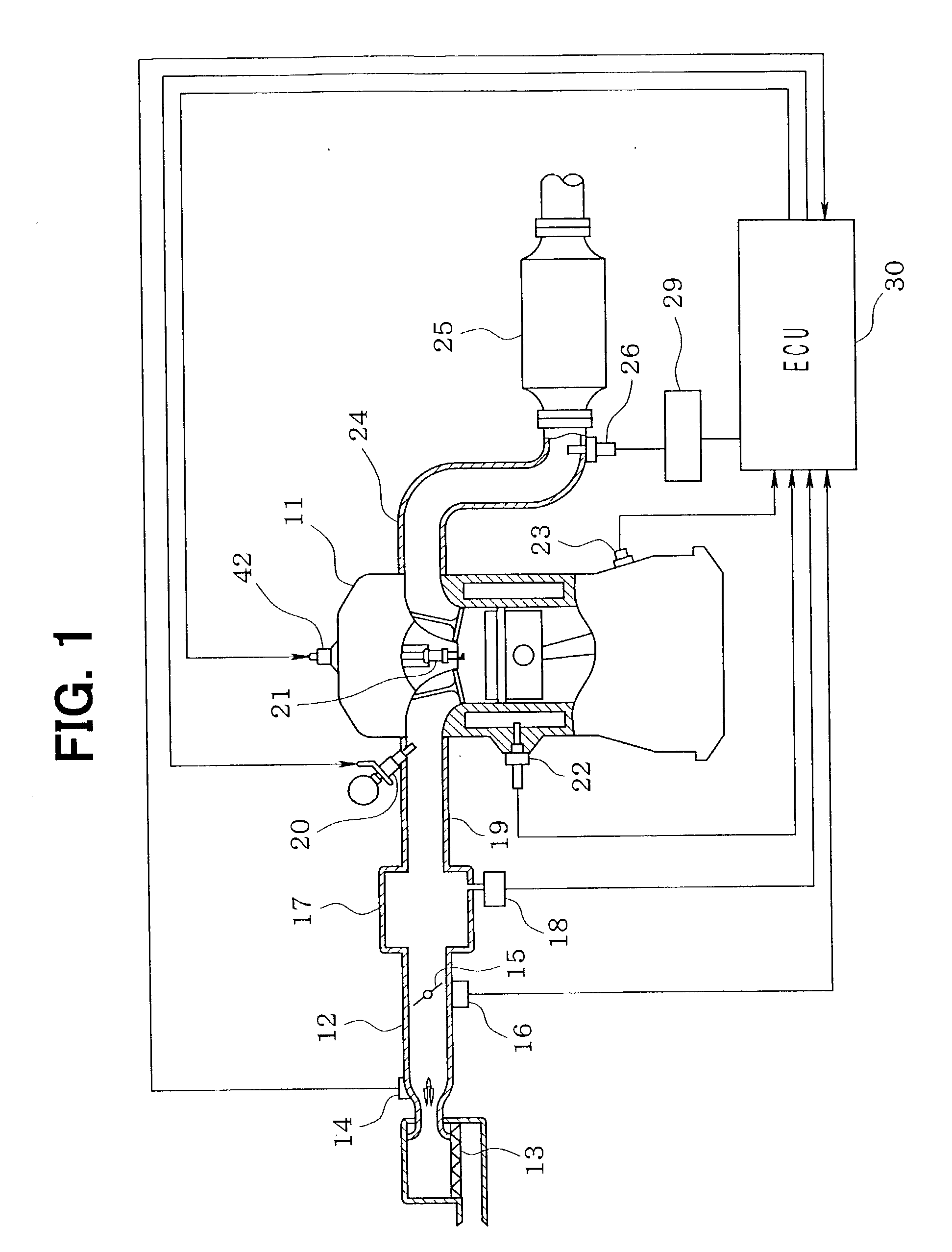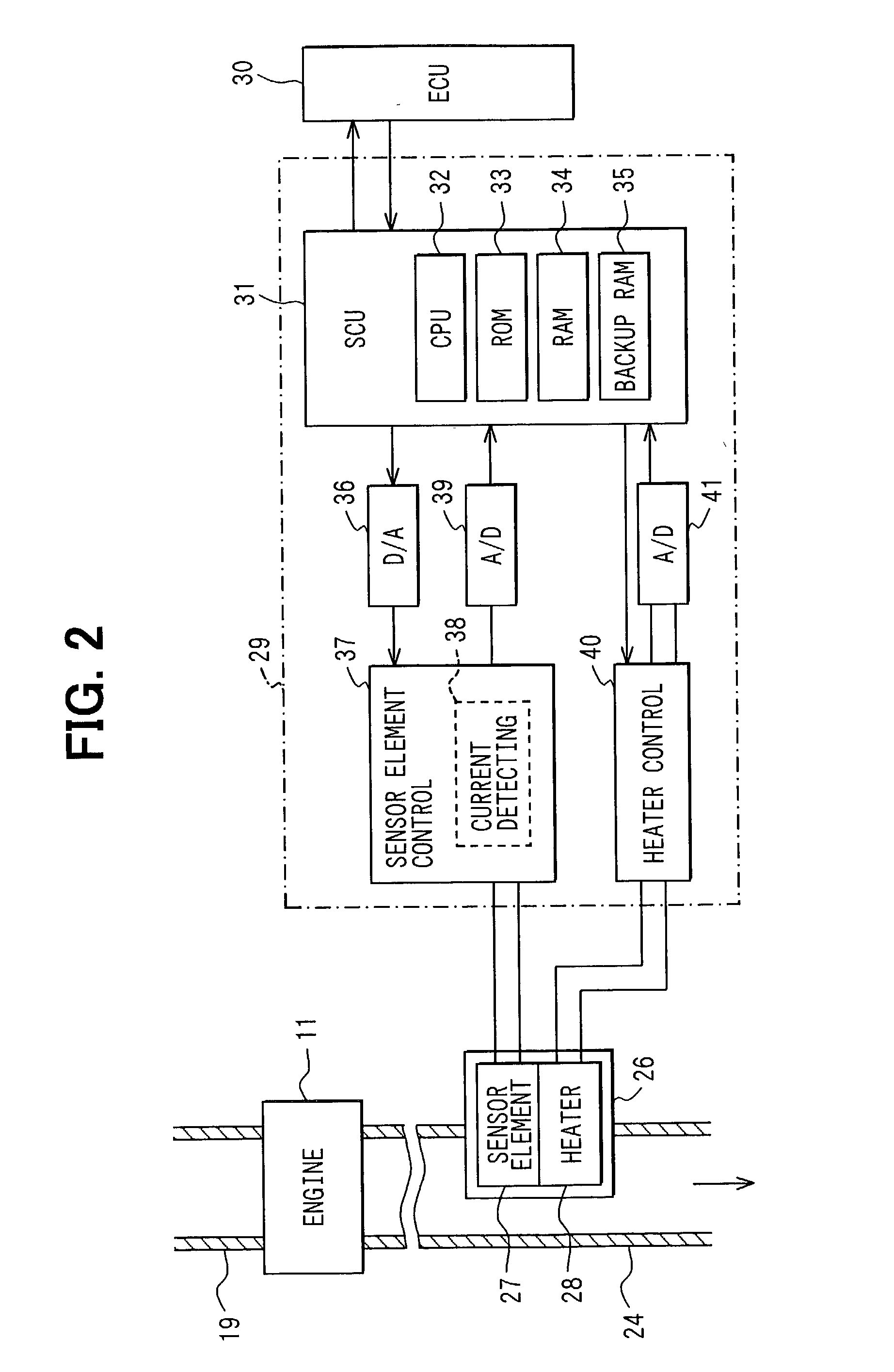Emission control system with catalyst warm-up speeding control
a technology of emission control system and catalyst, applied in the direction of electric control, machines/engines, mechanical equipment, etc., can solve the problems of inability to reveal the cause of a detected abnormality, difficult to accurately diagnose, and abnormal operation of engines
- Summary
- Abstract
- Description
- Claims
- Application Information
AI Technical Summary
Benefits of technology
Problems solved by technology
Method used
Image
Examples
first embodiment
[0095] Some preferred embodiments of the present invention are explained by referring to diagrams as follows. First of all, a simple and plain configuration of an engine control system is described by referring to FIG. 1. At the start end of the upstream portion of an intake pipe 12 employed in an engine 11 serving as an internal combustion engine, an air cleaner 13 is provided. On the downstream side of the air cleaner 13, an air flow meter 14 is provided for detecting an intake air volume. On the downstream side of the air flow meter 14, there are provided a throttle valve 15 and a throttle-opening sensor 16 for detecting a throttle opening.
[0096] Furthermore, on the downstream side of the throttle valve 15, a surge tank 17 is provided. On the surge tank 17, an intake-manifold-pressure sensor 18 is provided for detecting an intake-manifold pressure. In addition, on the surge tank 17, there is provided an intake manifold 19 for introducing air into each cylinder of the engine 11. A...
second embodiment
[0166] Next, a second embodiment of the present invention is explained. The elements of the second embodiment identical with their respective counterparts employed in the first embodiment are denoted by the same reference numerals as the counterparts, and explanation of the identical elements is not given.
[0167] FIG. 17 is a diagram showing the configuration of an emission control system implemented by the second embodiment. The catalyst 25 is a three way catalyst. On the exhaust pipe 24 on the upstream side of the catalyst 25, a sensor 51 is provided. On the exhaust pipe 24 on the downstream side of the catalyst 25, on the other hand, a sensor 52 is provided. The sensors 51 and 52 are each an exhaust gas component detection means for detecting a component of exhaust gas. Specifically, the sensors 51 and 52 can each be a sensor capable of detecting a concentration of a component of exhaust gas such as oxygen contained in the exhaust gas, a sensor capable of detecting an air-fuel rat...
third embodiment
[0201] Next, a third embodiment of the present invention is explained. The configuration elements of the third embodiment identical with their respective counterparts employed in the first and second embodiments are denoted by the same reference numerals as the counterparts, and the explanation of the identical elements is not given.
[0202] FIG. 22 is a diagram showing the configuration of an emission control system implemented by the third embodiment. The engine 11 is a V-type engine. The exhaust pipe comprises an exhaust pipe 24a for the right bank, an exhaust pipe 24b for the left bank and an exhaust pipe 24c for joining the exhaust pipe 24a to the exhaust pipe 24b. A catalyst 25 is provided on the exhaust pipe 24c. A sensor 52 is provided on the downstream side of the catalyst 25. The sensor 25 is an O2 sensor or an A / F sensor. A signal output by the sensor 52 can be used in correction of a target air-fuel ratio in feedback control of the air-fuel ratio. A sensor 26a is provided ...
PUM
 Login to View More
Login to View More Abstract
Description
Claims
Application Information
 Login to View More
Login to View More - R&D
- Intellectual Property
- Life Sciences
- Materials
- Tech Scout
- Unparalleled Data Quality
- Higher Quality Content
- 60% Fewer Hallucinations
Browse by: Latest US Patents, China's latest patents, Technical Efficacy Thesaurus, Application Domain, Technology Topic, Popular Technical Reports.
© 2025 PatSnap. All rights reserved.Legal|Privacy policy|Modern Slavery Act Transparency Statement|Sitemap|About US| Contact US: help@patsnap.com



